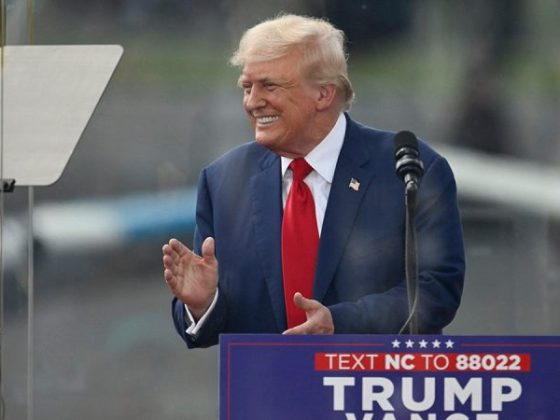Key takeaways:
El Salvador is marking three years since adopting Bitcoin as legal tender The government is continuing to add 1 BTC a day to its reserves A lack of anonymity appears to be putting off consumers Samson Mow tells Cryptonews that adoption ‘is a marathon, not a sprint’September 7, 2021 was one of the most significant days in Bitcoin’s history.
El Salvador became the first country in the world to adopt BTC as legal tender — defying warnings from the International Monetary Fund.
It was a rapid rollout for the dramatic new policy, especially considering it had been announced by President Nayib Bukele just three months earlier.
Every single Salvadoran citizen could claim $30 in free Bitcoin if they downloaded the government’s Chivo app.
Meanwhile, Bukele excited the crypto markets by regularly announcing that the country was buying thousands of BTC to hold in reserve.
It was a seismic moment for the small Central American nation — not to mention the Bitcoiners working tirelessly to push this digital asset into the mainstream.
But both have faced huge challenges over the past three years.
Bukele embarked on an unprecedented and brutal security crackdown in his “war on gangs” — arresting tens of thousands of people and raising humanitarian concerns. Bitcoin tweets came few and far between as he grappled with the grim realities facing his country, and a controversial constitutional change meant he was elected for a second term.
Although Bitcoin hit fresh highs of $69,000 in November 2021, a punishing bear market soon followed. It lost 75% of its value over the next 12 months, and the industry was roiled by a slew of high-profile bankruptcies. Only recently has BTC managed to find its footing again, with the launch of ETFs drawing in a fresh wave of institutional interest.
Fast forward to now, and there’s a question worth asking: has El Salvador’s big bet paid off? How big a role does Bitcoin play in everyday life? And what are Bukele’s next steps as he vies to reinvigorate the country’s economy?
Salvadorans Skeptical
Research by the Yale School of Management helped lift the lid on what life is like on the ground — and while there was “impressive” awareness of the government’s custom-build Chivo app, most consumers stopped using it after spending their bonus.
And while you might assume that volatility would be the main reason why Salvodorans were reluctant to trust Bitcoin, it was a lack of anonymity that was their biggest concern.
Although Bukele has continually been bullish about BTC’s potential, he gave a pretty candid interview to Time at the end of August.
“Bitcoin hasn’t had the widespread adoption we hoped for,” the president admitted. “I feel that it could have worked better, and there is still time to make some improvements, but it hasn’t resulted in anything negative. On the contrary, it gave us branding, it brought us investments, it brought us tourism.”
Nonetheless, Bukele dropped subtle hints that he had been right all along, saying: “Those who saved in Bitcoin when we launched it must have made a lot of money.”
He also pointed to the IMF declaring that the feared risks around Bitcoin had not yet materialized — but that probably reflects the fact that the cryptocurrency isn’t used widely.
Samson Mow has worked closely on El Salvador’s Bitcoin initiatives and is now CEO of JAN3, a company that focuses on nation-state adoption. When asked how he would grade the country’s efforts so far, Mow told Cryptonews he would give a B+.
“There’s still a gap in education and understanding of Bitcoin’s benefits, but we’re making steady progress. The momentum is there, and the long-term effects will continue to unfold over the coming years,” he said via email.
Mow explained that making sure Salvadorans are familiar with BTC can be a challenge as “there’s a natural hesitation to embrace something perceived as complex or risky.”
That said, the entrepreneur said it’s crucial to be patient, adding: “Bitcoin and its adoption are marathons, not a sprint. As people become more familiar with Bitcoin’s long-term benefits, we expect adoption to grow, just as has happened naturally among grassroots users worldwide.”
What’s Next for El Salvador?
While Bitcoiners may be focusing their attention elsewhere, Bukele’s government is continuing to quietly stack sats — adding 1 BTC a day to its balance sheet.
The country now owns 5,865 BTC worth $320 million at the time of writing, with a chart showing its daily balance looking not too dissimilar to a staircase.
Mow believes El Salvador now needs to focus on explaining Bitcoin’s practical use cases, and how it can benefit curious consumers who are yet to take the plunge.
“It’s not just about making Bitcoin available; it’s about showing people how it can improve their lives, especially in areas like remittances, savings, and small business transactions.”
This is a powerful point. Remittances refer to workers abroad who send funds back to their loved ones — and according to the World Bank, El Salvador is one of the biggest recipients of these payments globally, coming in at 26% relative to GDP as of last year. Exorbitant transaction fees from fiat money transfer providers dramatically eat into the income that families receive, and transactions can take days to clear. By contrast, Bitcoin can make such transfers cheaper and faster — meaning there’s more money to go around in local economies.
Despite the modest progress so far, Mow thinks other nation-states could adopt Bitcoin in the future — and interest in this digital asset’s potential is continuing to rise.
“El Salvador has been a trailblazer, and other countries are closely watching its progress,” he told Cryptonews. “The challenges faced here are natural for any groundbreaking initiative, and they provide valuable lessons for others considering similar moves. Many nation-states will see Bitcoin’s potential to offer financial sovereignty and economic empowerment, and El Salvador’s efforts will help guide their approach.”
With Bukele now in power until 2029, El Salvador will have a Bitcoin cheerleader in office for some time yet. And while he’s currently basking in the glow of impressive approval ratings, it seems the people are yet to be convinced of his vision for crypto.
The post Has El Salvador’s Bitcoin Bet Been a Success? appeared first on Cryptonews.


